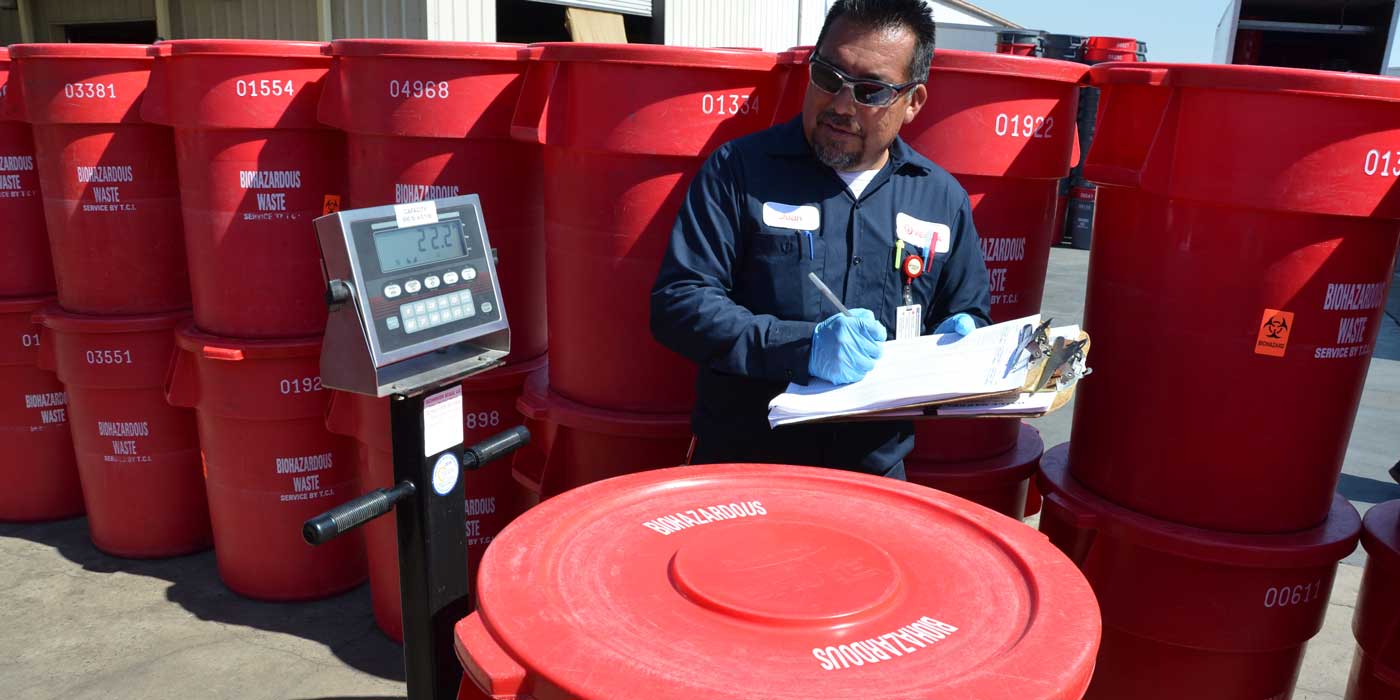Safe and Secure: The Clear-cut Choice for Specialist Medical Waste Removal Solutions
Safe and Secure: The Clear-cut Choice for Specialist Medical Waste Removal Solutions
Blog Article
Eco-Friendly Garbage Disposal Solutions for a Sustainable Future
Eco-friendly waste disposal options are not simple options but imperatives for a sustainable future. From waste partition at the source to energy healing from waste, a plethora of methods exist to attend to the difficulties of waste disposal responsibly.

Waste Partition at Resource
When executing waste partition at resource, individuals can considerably add to much more effective recycling and waste administration systems. By dividing different kinds of waste such as paper, plastic, glass, and organic products right from the point of disposal, the procedure of reusing ends up being streamlined, decreasing contamination and increasing the worth of recyclable materials. This method not just saves sources but also lessens the amount of waste predestined for landfills or incineration.
Correct waste partition at the resource is necessary for advertising a round economic climate where materials are reused, recycled, or composted as opposed to being disposed of as trash. It also helps in the reliable collection and handling of recyclables by waste administration facilities - medical waste removal service. Areas that take on waste segregation at the source frequently experience price savings in waste administration and see a reduction in ecological air pollution
People play a critical function in the success of waste partition initiatives by bearing in mind how they get rid of their waste - click here. Education and learning and awareness campaigns can better encourage the adoption of these methods, leading to an extra green and lasting technique to lose disposal
Composting and Organic Waste Management
A reliable approach for handling natural waste and promoting sustainability is through composting. Composting is a natural process that disintegrates natural materials like food scraps, yard waste, and paper right into nutrient-rich dirt changes. This procedure not just diverts natural waste from land fills yet additionally produces a valuable item that can improve soil, boost plant growth, and minimize the need for chemical fertilizers.

Carrying out composting programs at the household, community, and municipal degrees can significantly decrease the amount of natural waste that ends up in garbage dumps. Educational initiatives on composting ideal techniques and the advantages of organic waste diversion can further motivate extensive adoption of this environmentally friendly waste administration solution. click here. Inevitably, composting presents a sensible and sustainable approach to taking care of natural waste while adding to a greener and more lasting future
Recycling and Upcycling Campaigns
One secret aspect of promoting eco-friendly waste monitoring techniques is via the application of recycling and upcycling campaigns. Furthermore, recycling help in the conservation of raw products and decreases the demand for traditional waste disposal techniques like landfilling and incineration.
Upcycling, on the other hand, is the innovative reuse of discarded products or things to create products of better or value than the original. By upcycling, less waste is sent out to garbage dumps, and the demand for brand-new raw materials reduces. This lasting technique advertises innovation and encourages people to view waste as an important resource.
Both reusing and upcycling efforts play a vital function in advertising a circular economic climate and minimizing the environmental impact of waste disposal. click here. By integrating these practices right into daily life, individuals can add to a much more lasting future for generations to find
Energy Recovery From Waste

There are several innovations utilized for energy recovery from waste, including incineration, gasification, and anaerobic food digestion. Incineration involves burning waste at high temperature levels to generate steam, which after that drives turbines to create electrical power. Gasification transforms organic materials right into synthetic gas, which can be used for electrical energy generation or as a fuel resource. Anaerobic digestion breaks down organic waste to create biogas, which can be made use of for heat or electrical power production.

Community-Based Waste Reduction Programs
Using community involvement and involvement is necessary in implementing reliable waste reduction programs that enhance power recuperation campaigns in sustainable waste monitoring practices. Community-based waste reduction programs involve joint efforts in between citizens, local organizations, and authorities to reduce waste generation and enhance reusing prices. These programs typically include educational projects to raise recognition regarding liable waste disposal methods, the significance of recycling, and the benefits of reducing waste.
One usual method is the establishment of neighborhood recycling facilities where citizens can hand over recyclable products comfortably. These facilities promote recycling by making it conveniently accessible and offering sources for appropriate waste sorting. Additionally, neighborhood clean-up events and community recycling drives assist instill a sense of ecological duty and unity amongst citizens.
Moreover, community-based waste reduction programs can consist of efforts such as composting workshops, recyclable item exchanges, and the promotion of lasting practices in local organizations - medical waste removal. By including the neighborhood in waste reduction efforts, these programs develop a sense of ownership and cumulative duty towards building a more lasting future
Verdict
To conclude, implementing green waste disposal services such as waste segregation, composting, recycling, power recovery, and community-based programs is critical for a sustainable future. By embracing these methods, we can minimize the environmental impact of waste generation and advertise a circular economic climate. It is critical that companies, federal governments, and individuals interact to focus on lasting waste monitoring practices to secure our planet for future generations.
From waste segregation at the resource to energy recovery from waste, a variety of methods exist to resolve the difficulties of waste disposal responsibly. Educational campaigns on composting ideal practices and the advantages of organic waste diversion can better encourage extensive adoption of this eco-friendly waste management option.Efficiently utilizing power from waste products is a crucial method in sustainable waste management methods.Taking advantage of neighborhood engagement and participation is important in carrying out effective waste decrease programs that enhance power healing initiatives in lasting waste administration practices.In final thought, carrying out green waste disposal services such as waste segregation, go to these guys composting, reusing, energy recuperation, and community-based programs is essential for a lasting future.
Report this page